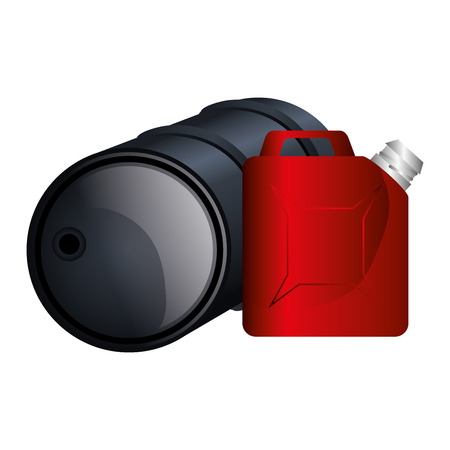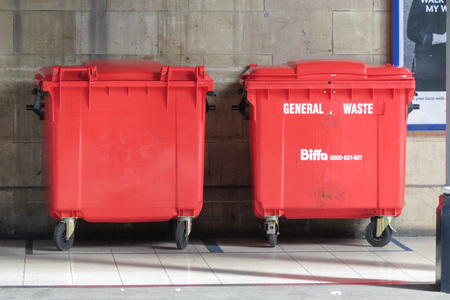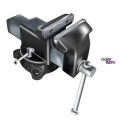Introduction to Fuel and Lubricant Safety
When it comes to tending the garden here in Britain, we often take pride in our lawns and borders, but sometimes overlook the crucial matter of handling fuels and lubricants for our trusty mowers, trimmers, and other petrol-powered equipment. Safe handling and storage of these substances isnt just a matter of ticking boxes—its essential for safeguarding both personal safety and the environment we cherish. With our unpredictable weather, frequent rain, and often cramped sheds or garages, British gardeners face unique challenges in keeping flammable liquids secure and away from harm’s way. A careless spill or poorly sealed container can quickly become more than just a nuisance; it can lead to dangerous fumes, fire hazards, or contamination of soil and water. By taking proper precautions, not only do we protect ourselves and our loved ones from accidents, but we also play our part in preserving the green spaces that are so dear to us all.
2. Choosing the Right Storage Containers
When it comes to storing fuel and lubricants for your garden machinery, selecting the correct container is not just about convenience—its a matter of safety and legal compliance. In the UK, strict regulations govern how petrol, diesel, and oils must be stored, both at home and in professional settings. Using the wrong type of container can result in leaks, contamination, or even prosecution.
Understanding British Safety Regulations
According to UK law, any container used for storing petrol must be specifically designed for that purpose and clearly marked with “Petroleum Spirit—Highly Flammable.” Homeowners are allowed to store up to 30 litres of petrol in suitable portable containers without needing a licence. For lubricating oils and diesel, while the rules are less stringent, it’s still best practice to use proper containers to avoid accidental spills or environmental hazards.
Types of Approved Containers
| Container Type | Material | Typical Capacity | Common Use | Where to Buy |
|---|---|---|---|---|
| Plastic Petrol Can | High-density polyethylene (HDPE) | Up to 10 litres | Petrol for small garden machines | B&Q, Wickes, Halfords |
| Metal Jerry Can | Steel (with anti-corrosive coating) | 5–20 litres | Larger quantities of petrol or diesel | Screwfix, Toolstation, local hardware shops |
| Oil Storage Drum/Bottle | HDPE or metal | 1–25 litres | Lubricating oils and two-stroke mix | B&Q, garden centres, motor factors |
| Pump Dispenser Canister | HDPE with integrated spout/pump | 500ml–5 litres | Accurate oil application for engines/chainsaws | Agricultural suppliers, DIY shops |
Key Considerations When Choosing Containers
- Certification: Look for containers labelled as meeting BS EN 13616 (for petrol) or UN approved for transport and storage.
- Colour Coding: In Britain, red is typically used for petrol cans and black or green for diesel—this helps prevent mix-ups.
- Tight Fitting Lids: Always ensure lids seal properly to prevent fumes escaping or moisture entering.
A Word from Experience
I’ve seen many a shed ruined by using old lemonade bottles or paint tins for fuel storage—false economy if ever there was one! Stick to certified containers from reputable local shops; they’re widely available and offer peace of mind. Remember: a few extra pounds spent on the right container could save you a lot more in the long run—not just in fines, but also in keeping your family and property safe.

3. Safe Handling Practices
When it comes to topping up fuel and lubricants for your garden machines, a bit of old-fashioned caution goes a long way. Here’s a step-by-step guide to help you refuel and oil your equipment safely, while keeping mess and hazards at bay.
Step 1: Preparation is Key
Before you even open a petrol can or oil bottle, make sure you’re outdoors or in a well-ventilated shed—never do this job indoors or near naked flames. Lay down an old rag or newspaper to catch any drips, and have a funnel handy to make pouring easier. Always turn off the machine and let it cool down completely; hot engines and fresh fuel are never a good mix.
Step 2: Careful Pouring
Unscrew the fuel cap slowly to release any built-up pressure. Use your funnel to pour petrol or oil steadily into the tank, taking care not to overfill—most tanks have a marked fill line. Wipe up any splashes straight away with your rag, and dispose of it safely afterwards. Avoid smoking or using your mobile while handling fuels; sparks and fumes simply don’t mix.
Step 3: Ventilation Matters
Good airflow is crucial when working with fuels and lubricants. Not only does it disperse harmful fumes, but it also helps prevent the build-up of flammable vapours. Keep doors and windows open if you’re working in a garage or shed, and never run engines in confined spaces.
Extra Tips from Experience
A steady hand comes with practice, but patience is just as important. Take your time, double-check caps are secure after filling, and store containers upright immediately after use. If you do happen to spill anything, clear it up promptly—fuel stains on paving can linger for weeks, and nobody wants that reminder every time they mow the lawn!
4. Storage Location and Conditions
When it comes to keeping fuel and lubricants for your garden machines, where and how you store them in a typical British home or shed matters greatly. Not only does proper storage prevent accidents, but it also ensures these substances remain stable and effective over time. Let’s explore the key considerations for choosing the right spot and conditions.
Choosing the Right Spot
Ideally, fuels and lubricants should be stored outside of main living areas, such as in a garden shed or a dedicated outbuilding. The area should be well away from heat sources and direct sunlight, which can cause degradation or increase the risk of fire. If using a garage, make sure it is not attached directly to your home’s living spaces, as fumes can seep through walls and doors.
Temperature and Ventilation
British weather is famously changeable, so fluctuations in temperature are common. Aim for a cool, dry place where temperatures stay relatively stable throughout the year. Good ventilation is essential to disperse any vapours that might escape from containers, reducing both odour and risk of explosion. Never store fuels or oils in cellars or poorly ventilated basements.
Security Considerations
Security shouldn’t be overlooked. These products are potentially hazardous if misused, especially by children or pets. Always store them in locked cabinets or containers, ideally raised off the ground to avoid dampness and accidental spills. Some sheds come with built-in lockable storage sections; if yours doesn’t, consider installing one.
Quick Reference Table: Storage Recommendations
| Factor | Recommendation |
|---|---|
| Location | Shed or detached garage, away from home entrances |
| Temperature | Cool & stable (ideally 5–20°C) |
| Ventilation | Good airflow; avoid sealed rooms/cellars |
| Security | Lockable cabinet or container, out of reach of children/pets |
A Few Extra Tips from Experience
If you’ve been around the block a few times with garden machinery, you’ll know that a bit of prevention goes a long way. Place absorbent mats under containers to catch drips and always label everything clearly—trust me, you don’t want to mix up your two-stroke oil with BBQ lighter fluid! Check your storage spot every season for leaks, rust, or damage to containers; staying vigilant keeps your garden safe year-round.
5. Disposal and Environmental Responsibility
When it comes to garden machinery, proper disposal of old fuel, oil, and their containers is not just good practice—its a legal and environmental necessity in the UK. Failing to dispose of these substances correctly can harm wildlife, pollute waterways, and even result in hefty fines. Therefore, its essential to understand your responsibilities and adopt best practices for safe disposal.
UK Regulations on Disposal
Under UK environmental law, waste oils and fuels are considered hazardous substances. Pouring them down drains or onto the ground is strictly prohibited. Instead, you must use licensed waste disposal facilities. The Environmental Protection Act 1990 lays out clear rules for householders and businesses alike: always store waste securely and deliver it to an authorised collection point.
Where to Dispose of Old Fuel and Oil
Most local councils operate recycling centres (often known as “tips” or Household Waste Recycling Centres) that accept small quantities of used engine oil and empty fuel cans from domestic users. You can find your nearest centre by checking your council’s website or using resources like Recycle Now. Always ensure containers are tightly sealed and clearly labelled before transporting them.
Best Practices for Safe Disposal
Never mix old fuel with other chemicals or household waste. Use a funnel to transfer liquids into approved containers, avoiding spills. For larger quantities or commercial operations, consider contacting a registered waste carrier who can collect hazardous materials directly from your premises. Empty oil containers should be drained fully; if plastic, they may be recycled at select centres once clean.
Caring for Your Community and Environment
By disposing of lubricants and fuels responsibly, you’re helping protect the local environment and ensuring compliance with British law. If you’re ever unsure about how to handle a particular substance or container, your local council’s environmental services team will be happy to advise. Remember: a little extra effort goes a long way towards keeping our gardens—and our countryside—clean for future generations.
6. First Aid and Emergency Procedures
Even with the utmost care, accidents can occur when handling fuels and lubricants for garden machines. Knowing how to respond swiftly and correctly is not just good sense—its a lesson passed down through generations of British gardeners. Here’s what you need to know should things go awry.
Spills: Contain and Clean
If you spill fuel or oil, don’t panic. Immediately contain the spill using absorbent materials such as sand, cat litter, or commercially available spill kits. Never hose spills into drains or soil, as this contaminates local waterways—a point my father always reminded me of after a busy day in the shed. Once absorbed, scoop up the material into a sealable container and contact your local council for proper disposal advice.
Exposure: Act Quickly
If skin comes into contact with fuel or lubricant, wash thoroughly with soap and cool water; avoid using hot water as it can open pores and increase absorption. Should any liquid splash into your eyes, rinse them under running water for at least 10 minutes and seek medical attention if irritation persists. Inhalation of fumes can cause dizziness or nausea—move to fresh air immediately and consult a healthcare professional if symptoms continue. A wise old neighbour once told me, “Always keep an eye-wash bottle handy in the shed—you’ll thank yourself one day.”
Fire: Don’t Hesitate
Fuels are highly flammable. If a fire starts, evacuate everyone from the area without delay. Do not attempt to tackle large fires yourself—call 999 for the Fire & Rescue Service straight away. If safe to do so, use a dry powder extinguisher on small fires (never water!). Remember the advice I heard growing up: “Don’t be a hero—let the professionals handle it.”
Emergency Contacts
- Fire, Police, Ambulance: 999
- NHS Non-Emergency Medical Advice: 111
A Few Timeless Tips
- Keep emergency numbers by your landline and save them in your mobile.
- Store a first aid kit in your garden shed or garage; check contents regularly.
- Brief all family members or helpers on what to do in case of accident.
By following these time-honoured procedures and staying prepared, you’ll keep yourself—and your garden—safe for many seasons to come.


